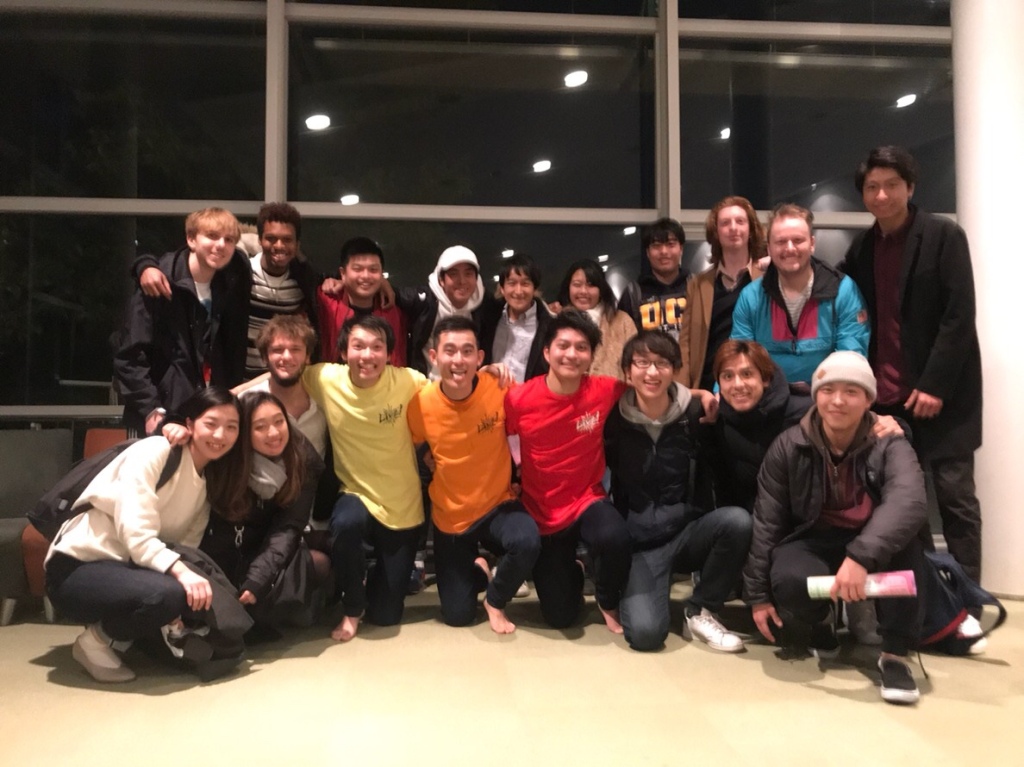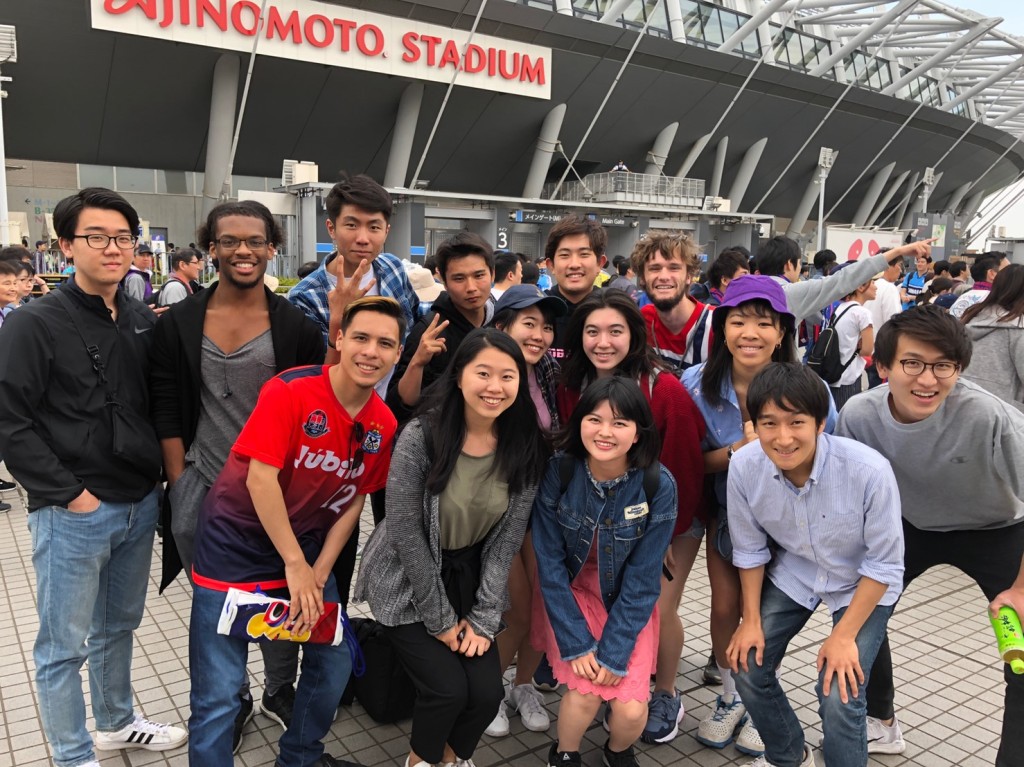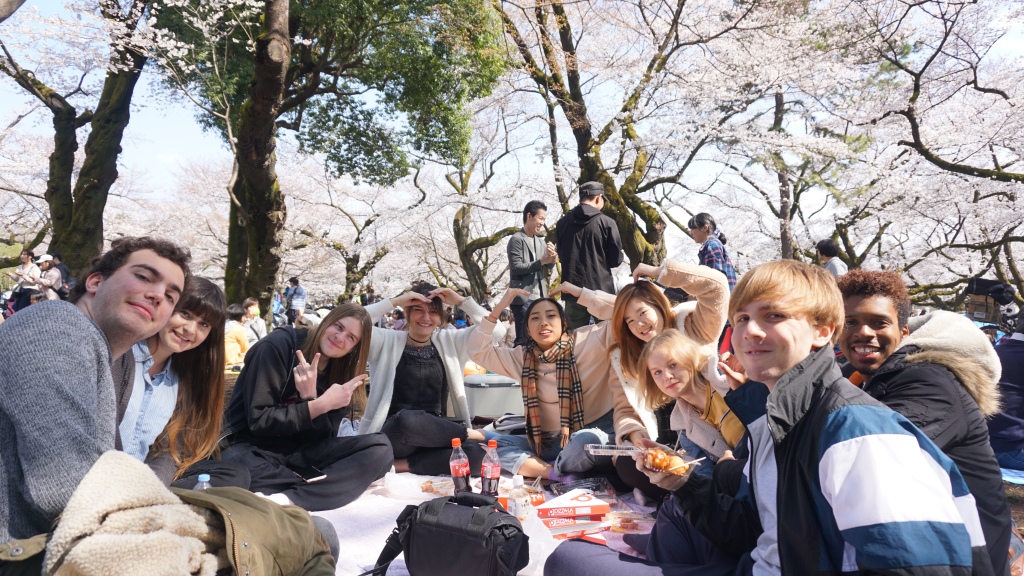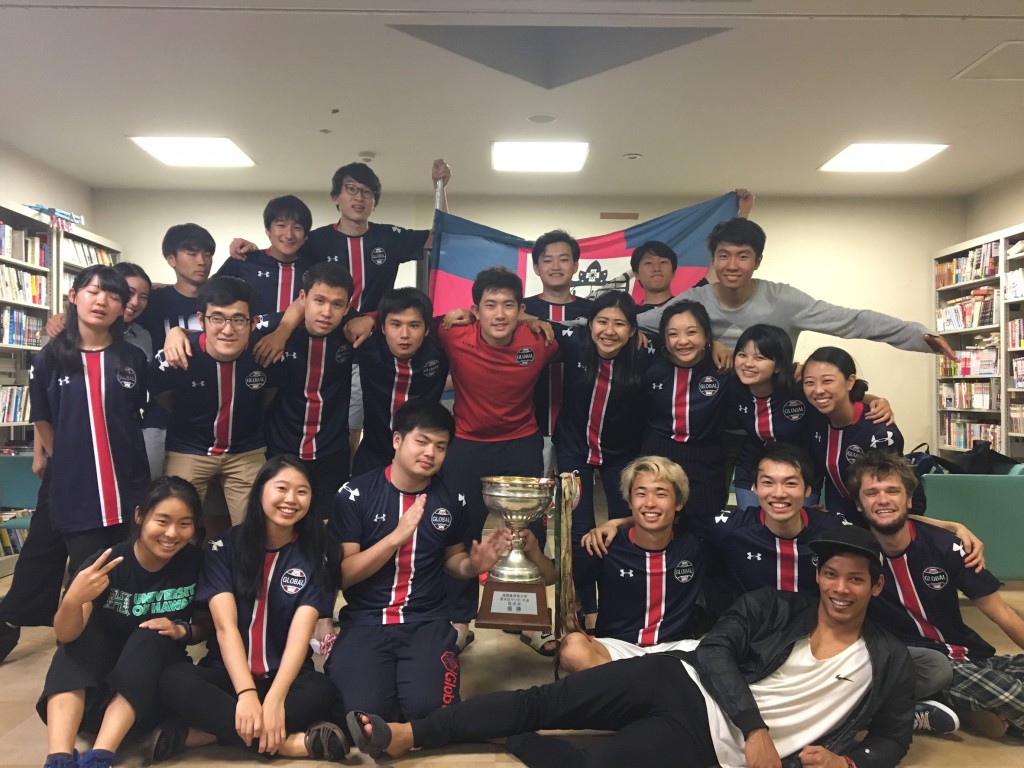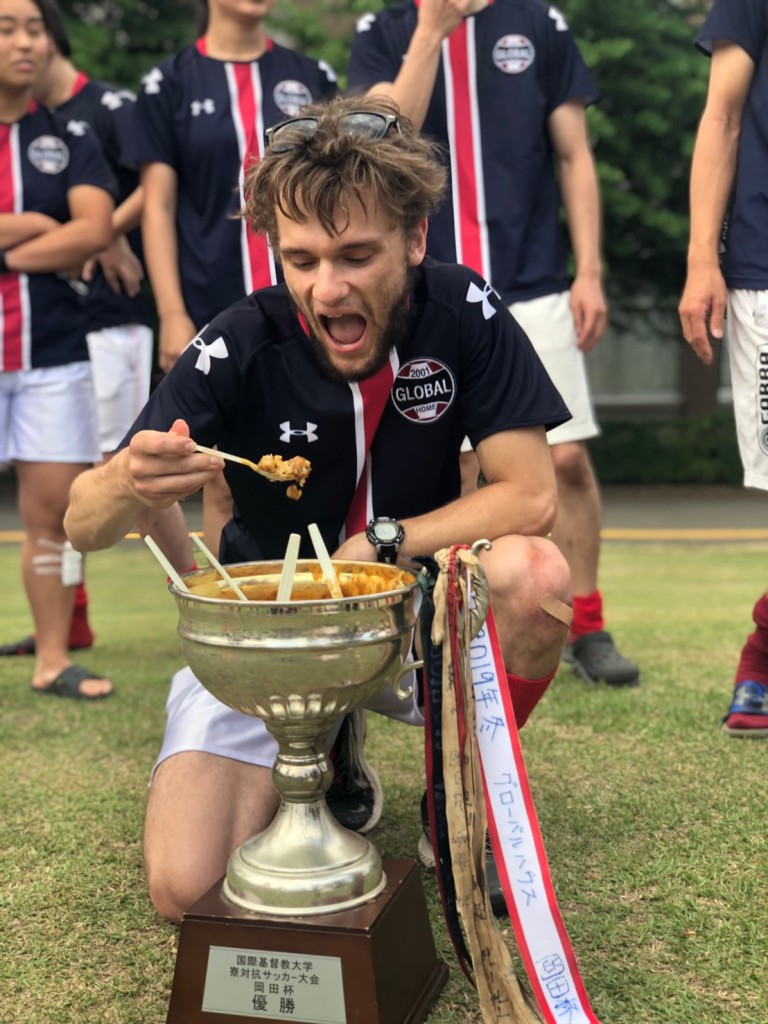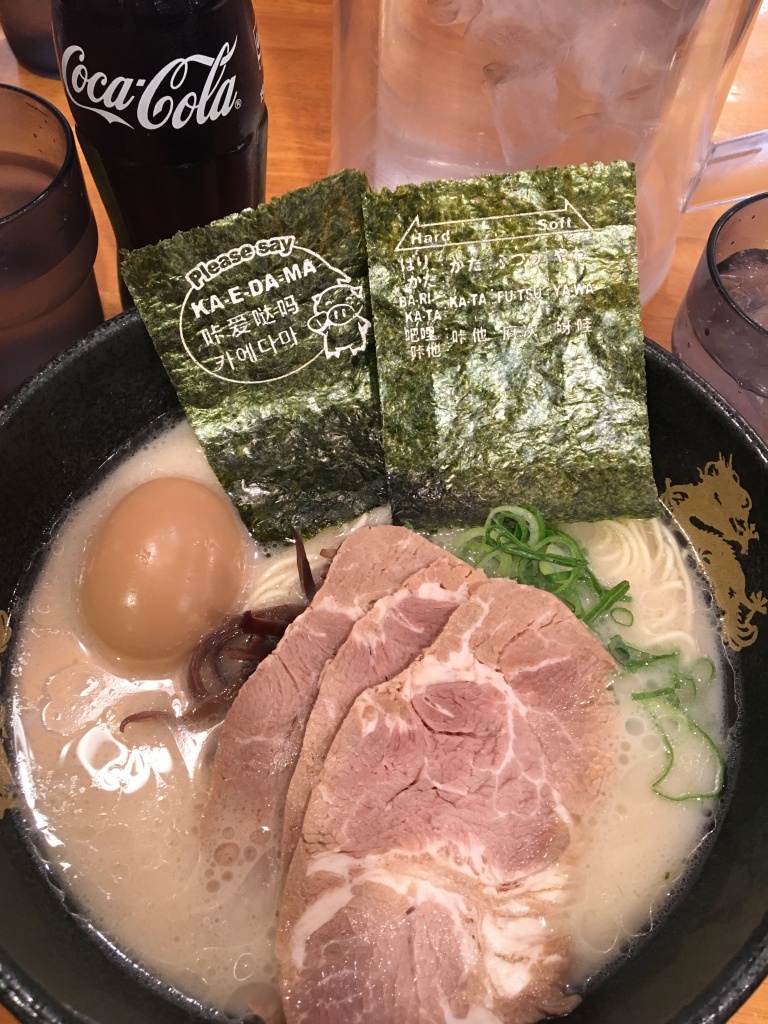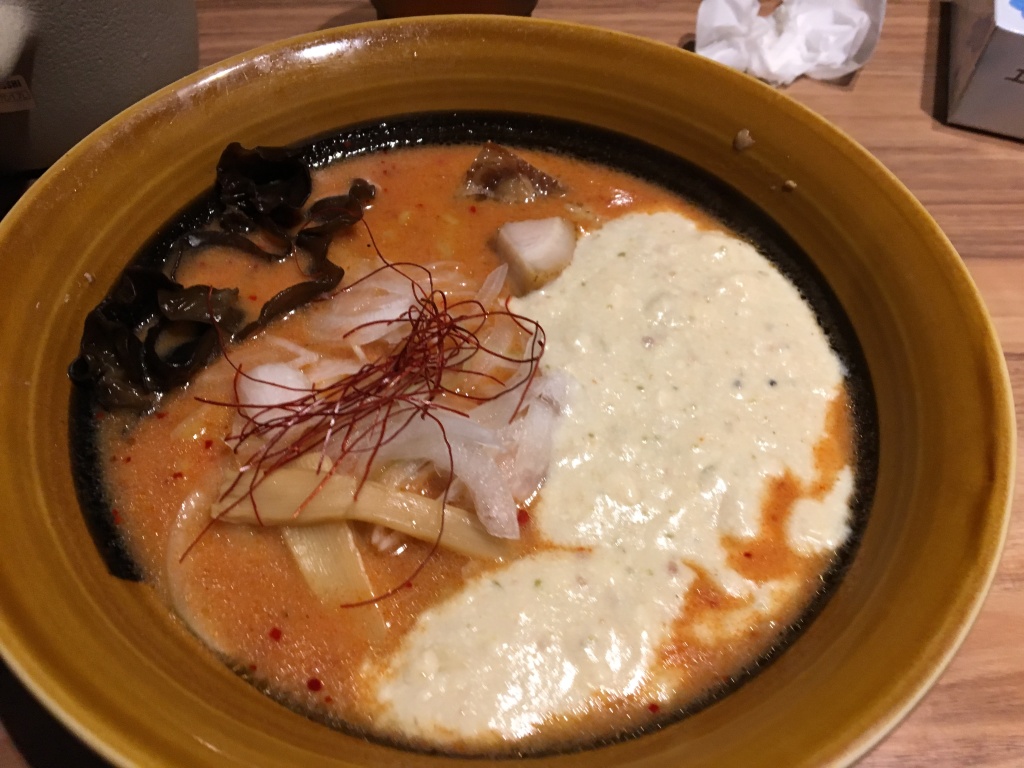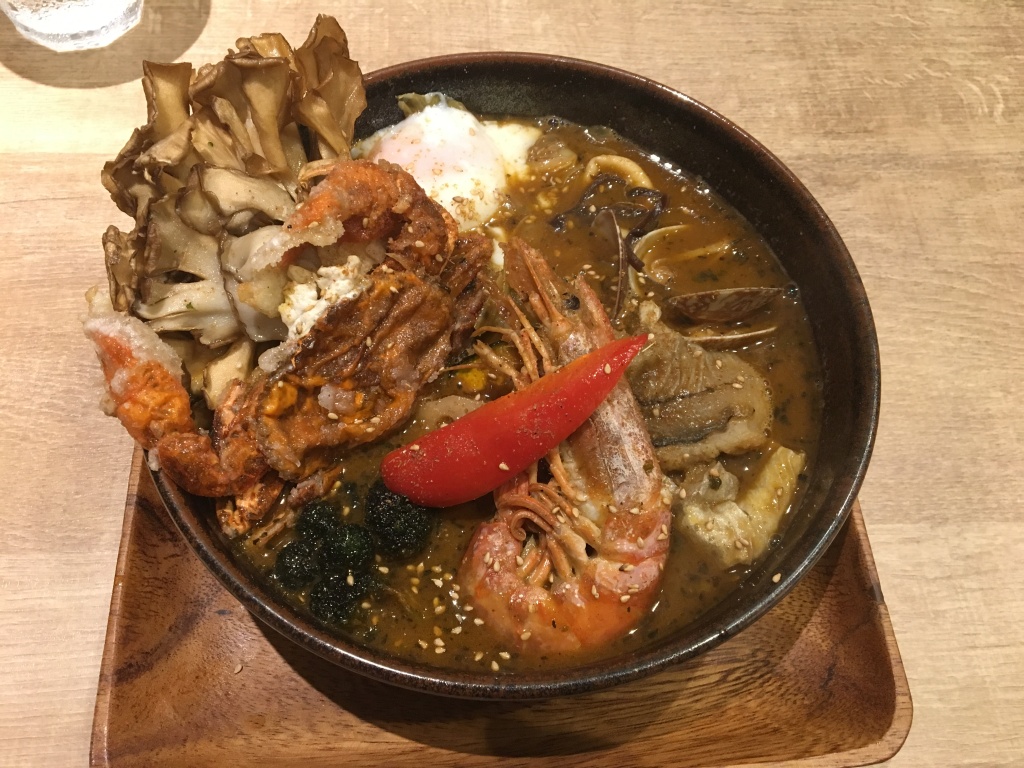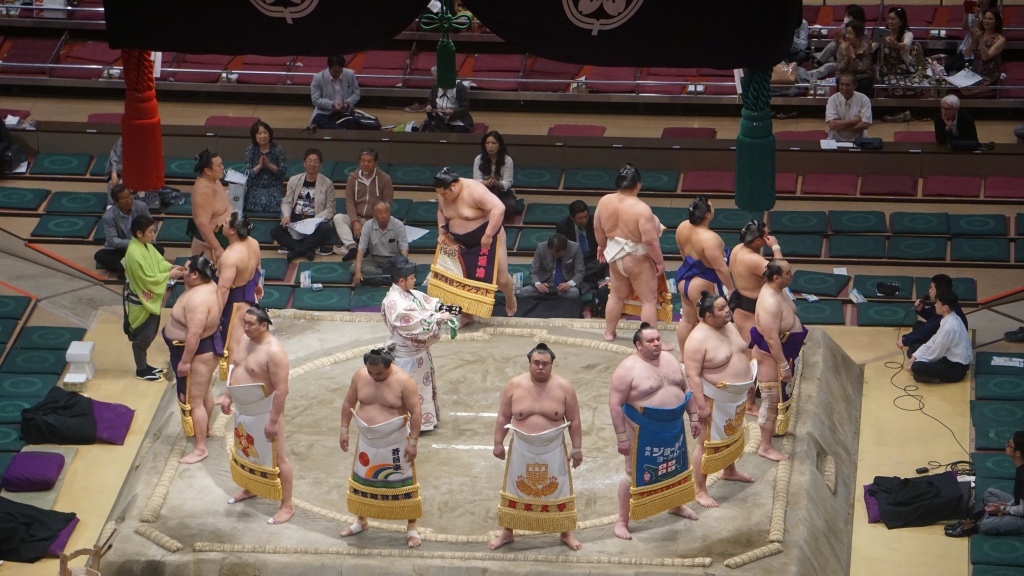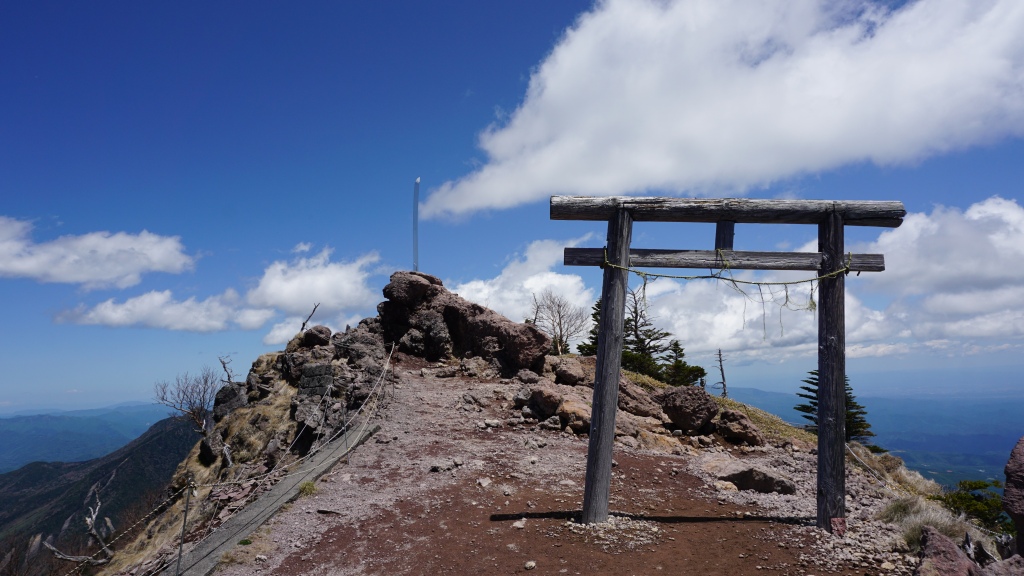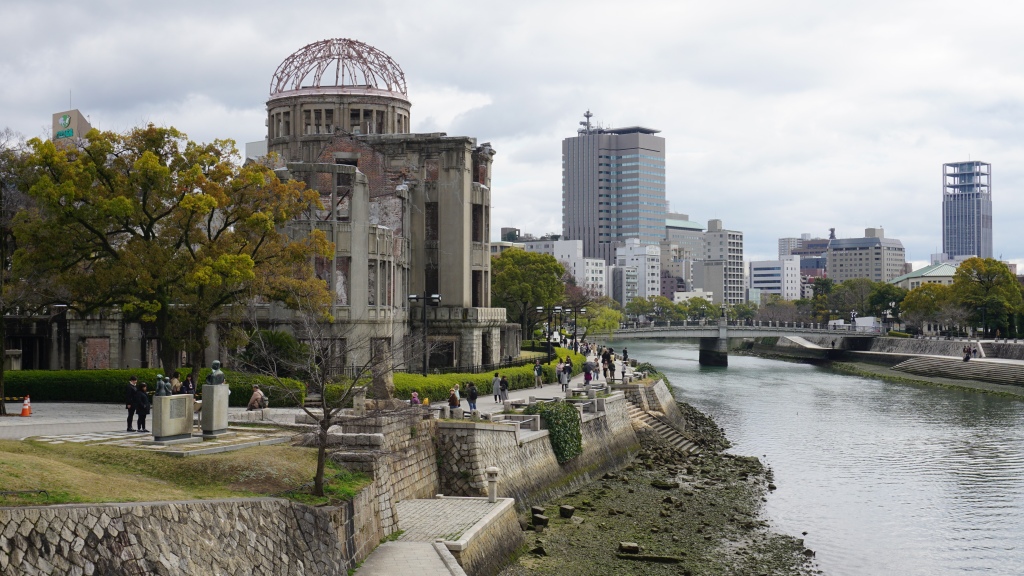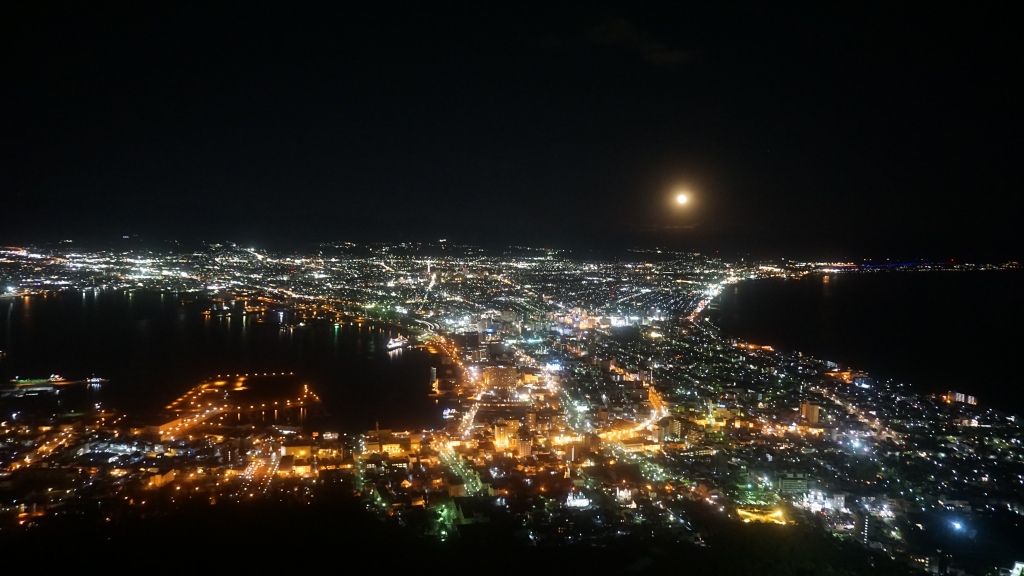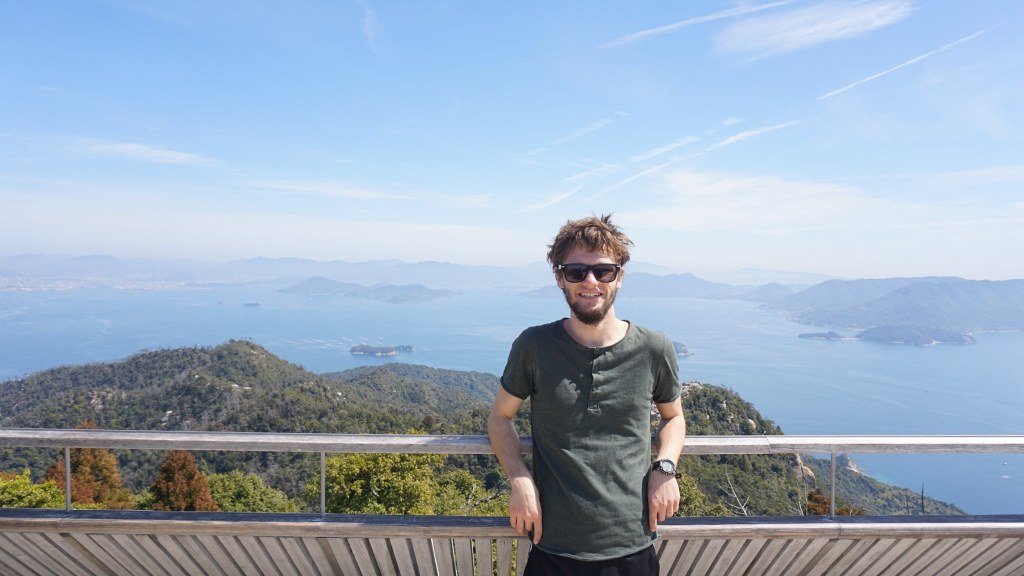
Study abroad in Japan, study abroad in Japan, study abroad in Japan!!!
ACADEMICS
- What types of classes did you take abroad and how did they compare to UCSB?
I took Japanese language classes every quarter while abroad, as well as a variety of GE, Major, and general interest classes. The Japanese classes were fun and I learned a lot, but they were a lot more intensive than here at UCSB. You have about 2 hours of class everyday, and coupled with the homework it could get kind of tiring. But I still loved it! I really liked my classmates and we all became good friends by the end. The other classes I took had much smaller class sizes than at UCSB, and honestly they were a lot easier. - What was your favorite class abroad?
My favorite class (other than the Japanese classes) was a class called “International Relations of the Asian Pacific”. As a Global Studies major this was right up my alley. We talked about a variety of topics that affected the Asia Pacific region. The Professor presented his ideas well, and also encouraged us to engage with our fellow classmates and share ideas in person and through posting online on a blog. - Did you intern, volunteer, or conduct fieldwork or research abroad? If so, tell us about your experience.
I did do an internship! I interned in the marketing department at IBM Japan for three months. In the marketing department I was placed in the data analytics group. My primary tasks were to look at different IBM assets (mainly websites like blogs), and look at the traffic they receive and how many visitors are engaging with the page. After looking at all the data for trends, I would come up with recommendations on what I think could be done to improve the webpages to get more traffic or engagement. I had an absolutely wonderful time at IBM. All of my coworkers were incredibly kind and helpful, and my supervisor taught me so so much. I went in about three times a week, riding my bike to the station then taking a train most of the way, and walking for about 10 minutes for the last part. The work was done in English (thankfully) but I always spoke Japanese with my coworkers, which really helped me improve my speaking ability. Outside of the actual work I was doing, I was invited to various dinner parties by my supervisor and coworkers, joined a salsa club taught by a coworker, and participated in monthly hikes through the IBM marketing hiking club. The memories I made at IBM are definitely some of my most cherished memories I have from Japan.
HOST INSTITUTION
- How would you describe your host institution?
Green. Very very green. There are so many trees at ICU. Looking out from my dorm window was like looking into a forest, no joke. And when it was fall I got to watch all the leaves turn different colors and fall. And even better, in the spring there were a ton of sakura blossoms all around campus; it was gorgeous! Campus is also kind of small compared to UCSB. My Japanese friends say it’s actually a larger campus for Japan, but to me it felt sort of small, I mean, I could walk everywhere on campus totally fine! - Are there student clubs/organizations that UC students can join?
Yes, there are many! The clubs at ICU are split into two kinds actually. You have “clubs” which are generally pretty intense. They practice often and if you join they expect you to be dedicated and participate in almost all practices/events. The other kind are called “circles” which are much more laid back. For these attendance is not nearly as strict. I joined a circle called “ICU Runners” which as you can probably guess, is a running club. We would go for runs two or three times a week, and held different quarterly events. Some of my best memories were from walking around the Yamanote-sen (a large circular train line), which took about 16 hours to do. That and running a 10k race with some of the Alumni. I ran well (placing 7th overall, 1st for my age group) and afterwards we hung out at a nearby mall.
HOUSING
- Describe your housing situation.
Since I did such a long program I stayed in a few different dorms, but the one I was in for the longest (the year program one) was called “Global House”. I absolutely loved it here! It’s set up in a “suite” format, so you get your own bedroom, and share a living room and a small kitchen with 3 other people. The dorm is about half international people from all around the world, and half regular 4 year students. It was a great mix of cultures and languages and I had a great time. I made some amazing friends that I spent a lot of time with, as well as participated in various events the dorm would put on. In retrospect, the best choice I made while there was to join the dorm soccer team. Twice a year there is a soccer tournament between the dorms, and in order to win we would practice about twice a week at 7am. The team was mostly made up of the 4 year regulars, so it was a great way to get to know them all. As a team we went and watched a professional soccer game, and after we won the dorm tournaments (we won TWICE) we threw a great party!
FOOD
- Where did you eat most of your meals?
I ate most of my lunches in the student cafeteria. The quality is much better than here at UCSB, but the menu didn’t have much variations, so I did get kind of tired of it over time. For dinner I would either cook something (almost always it was a seafood bowl), or I would go out to eat. There were a few ramen places and sushi places that were an easy bike ride away. I actually went to one ramen place (guutara) so much that I got pictures with the owners before I left. I would also sometimes drag friends along with me more into downtown Tokyo (usually Shinjuku) to get fancier food.
- How much was an average meal? Do you have any budgeting tips for future students?
On campus the meals were about 3-6 dollars, depending on how much you got. Pretty cheap right! And eating out was also pretty cheap! A bowl of ramen is usually around 7 dollars, with the fancier ones being 9 or 10. Sushi varies of course, but honestly even the 1 dollar sushi is better than most of the sushi in the states. Unfortunately I don’t have any budgeting tips…Japan was my dream destination so I tried not to worry too much about how much I spent. I’d saved up for it, so it was time to enjoy it. - Would it be difficult for vegetarians/vegans and others with strict dietary restrictions to find meals?
Unfortunately, it is kind of hard for vegetarians/vegans in Japan. On campus it is totally do-able, but gets boring fast so I’ve heard. But eating anywhere else can be hard with strict dietary restrictions. But that’s not to say it’s impossible! I knew many people who were vegetarian the entire time in Japan, although pescatarian is much much easier. I also had a friend who stayed vegan the whole time. And it is also possible to avoid gluten, but can be difficult. Japan is however getting more used to food restrictions and many places in the big cities are starting to mark it on menus or can make substitutions. - Describe your most memorable dining experience abroad.
Ugh, you can’t make me just pick one! If I had to pick one, it was eating at a famous kaitenzushi (conveyor belt sushi) place in Sapporo. The wait was around an hour but my god was it worth it. Everything was so fresh and tasted amazing, but the pièce de résistance was the hotate (scallop). I still dream about that scallop, and I’ve resigned myself to probably never having one as good again… - What local food or drink do you miss most now that you are back?
Again, you can’t make me choose just one!! I miss ramen, udon, sushi, takoyaki, taiyaki, melon bread, coolish (an ice cream treat), peach wine, tonkatsu, gyudon, yakiniku and so much more!
HOST CITY
- Describe your host city.
My campus was in Tokyo prefecture, but not actually in Tokyo city. ICU is located in Mitaka, which is much more suburban. I actually picked it because it was more suburban. Downtown is fun, but the hustle and bustle is too much to live in; at ICU/Mitaka there is plenty of nature around and you can see what Japanese neighborhoods are actually like. - Was it easy to get around?
Before I got my bike it was a little inconvenient. You can walk to the train station, but it’s a decently long walk, other wise you have to wait for the bus. But after I got my bike it was totally fine! And of course once you’re at a train station you can get absolutely anywhere you want to go, It’s incredible how efficient, safe, and clean the Tokyo train/subway system is!
- Did you feel safe in your host city? Do you have any safety tips for future students?
I felt incredibly safe! I honestly don’t think there was a single time I felt unsafe anywhere in Japan. My only tip would to be careful on the trains, make sure to keep your bags close just in case there are pickpockets. It’s uncommon, but not unheard of. - What were some interesting/fun things that you did in your host city?
Oh man, I have too many to list, but I’ll try a few: various festivals, Tokyo tower, Tokyo skytree, Shinjuku’s Kabukicho, Tokyo Station, Yoyogi park, No river (right behind ICU), kogane park, Tokyo disney land, Roppongi, Odaiba shopping, Studio Ghibli Museum, Akihabara, various arcades, Harajuku, Tokyo Edo Museum, watching Sumo, watching Kabuki, Shibuya scramble crossing, Nakano Broadway, and so so much more.
HOST CULTURE
- Describe any cultural differences you experienced while abroad.
This biggest difference is of course the language. There are many cultural differences as well, but honestly none of them are that big of a deal, it’s interesting to learn about them, but you shouldn’t have any trouble adjusting to them. An amusing difference to me is how people react to trying food, especially if a friend gave it to them. Every Japanese person I met was really good at complimenting the person who gave them the food. They would keep saying how delicious it is and ask questions about it, it’s way more than we do here in the US. So get practicing! - How did you handle culture shock?
I honestly can’t say I had too much culture shock. I think what helped was to exercise. I’ve always been an avid runner, so I made sure to keep it up while in Japan. It was a great way to relieve stress, clear my head, and to explore the area around my campus. Every now and then things would start to pile up, either classes or just life in Japan, but a good run always helped. - What is your favorite aspect of your host culture?
I really like how Japanese puts the group before the individual. I recognize that this can sometimes lead to people biting their tongues and maybe not saying something that should actually be said, but I think on the whole it is very nice. Because people are more conscious of other people everyone is very punctual and gives it their all in whatever their work is. I really admire that.
TRAVEL
- Tell us your favorite travel story from your time abroad.
My dream trip from the moment I knew I was going to study abroad in Japan was to go to Hokkaido (the northern island of Japan). I really think it is the most beautiful place in the world. It has an incredible mix of picturesque cities and expansive nature. And every single season there is unique and beautiful. For fall break I went with three other friends first to Aomori prefecture, then took a ferry across the water to the city of Hakodate, and then a bus to Sapporo. We went to several hot springs, explored beautiful parks, shopped in downtown Sapporo, and ate enough seafood for a lifetime. I loved this trip so much I am determined to go back many more times in my life.
REFLECTION
- What was your biggest fear about studying abroad that turned out to be no big deal?
This is going to sound kind of lame, but I was nervous about walking on the wrong side of the sidewalk. Because they drive on the left side of the road in Japan, people also naturally walk on the left side of the sidewalk, and that is the opposite of the US. I walk faster than most people, and get annoyed when people are on the “wrong” side of the sidewalk, so I was super nervous I would become what I dislike. Luckily I adjusted pretty fast, and now honestly I’m having a hard time switching back….
- What was your biggest challenge abroad?
Making sure I made the most of it. Looking back now I did a ton of things, and I really enjoyed my time abroad, but I can also remember too many weekends where I didn’t do anything. In the moment you may feel stressed and bogged down by school, but honestly experiencing life in a new culture is a lot more valuable of an experience, in my opinion. I tried my best to just get out and go somewhere instead of staying in my room/around campus, and I succeeded most of the time, but I wish I had done even more.
Oh, and also Kanji was (and still is) a pain.
- How have you changed as a result of your time abroad?
I’ve become a lot more outgoing. I was never afraid to meet new people before, but now I really enjoy and look forward to it. I’m much more open to saying yes to new experiences and seeing where they lead. The biggest thing I’ve learned is that rarely anything bad comes from meeting new people or saying yes. Sure you may not enjoy certain things, but now you know, and the world didn’t end, so your fine!
I also became much better at getting back in touch with people. When I came back from Japan I messaged and met up with friends that I hadn’t seen since starting college. Coming back from being abroad was a good excuse to reach back out to people, but it also helped teach me to cherish the friends you’ve made, even if you haven’t talked to them in a long time. Like I said above, just do it, ask if they want to meet up, nothing bad will come from it.
- What is your advice to prospective UCSB EAP students?
Have fun with it! Try new things, eat new foods, go get lost somewhere. Do some research about where you’re going, get excited about it! And while you’re abroad, if you ever have a question, even if you could find the answer for yourself, just go ask someone! You’ll have the chance to meet some amazing people that you may have just walked by otherwise. And lastly, if you go to ICU (especially for the year) get a bike!






